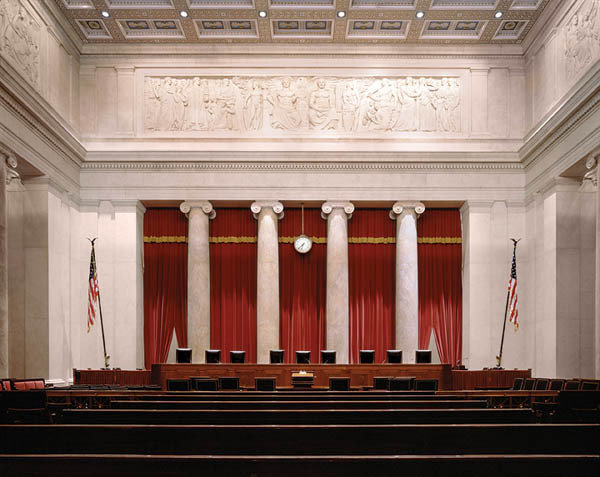Court watchers and scholars often caution against predicting the outcome of a Supreme Court case based on the oral arguments, but odds are the Trump administration’s top lawyer defending the president’s tariffs Wednesday before the justices did not go home very optimistic about his chances.
 During more than two hours of arguments, there was skepticism to varying degrees by a majority of the nine justices of the administration’s position that Trump had authority to impose tariffs under the IEEPA (International Emergency Economic Powers Act).
During more than two hours of arguments, there was skepticism to varying degrees by a majority of the nine justices of the administration’s position that Trump had authority to impose tariffs under the IEEPA (International Emergency Economic Powers Act).
The 1977 IEEPA states that a president can declare a national emergency to “regulate… importation or exportation” of “property in which any foreign country or a national thereof has any interest” to “deal with any unusual and extraordinary threat” to “national security, foreign policy, or economy of the United States.”
The law does not specifically mention the word tariff and no president, until now, has claimed authority to impose tariffs under it. Trump has set tariffs on imports from more than 100 countries in order, he claims, to reduce trade deficits with those countries and to encourage domestic manufacturing.
“Figuring out what ‘regulation of importation’ means” is the major issue here,” Justice Brett Kavanaugh said.
The administration’s lawyer, U.S. Solicitor General D. James Sauer, argued that “regulate…importation” is the power to regulate foreign commerce, a regulation of foreign affairs, not a power to tax.
The administration needs to persuade the justices that this is not a power to tax because, as Sauer’s opponents argue, the Founders gave the power to tax to Congress alone.
“Tariffs are taxes,” former acting solicitor general Neal Katyal, representing a group of small businesses challenging the tariffs, said. “They take dollars from American pockets and deposit them in the U.S. treasury.”
Justice Amy Coney Barrett focused on the text of the IEEPA and asked Sauer, “Is there any place in the code or any time in history where that language ‘regulation of importation’ has been used to confer tariff authority? Any statute?”
Sauer struggled to answer but did offer an earlier high court case. He faced a similar question from Kavanaugh who asked why presidents have not used the IEEPA to impose tariffs until Trump.
Sauer explained that other national emergencies, such as the Iran hostage crisis, were not conducive to the use of tariffs to achieve specific objectives.
Besides the lack of support for tariffs in the statute’s text, a number of justices also were concerned with the potential limitless power that the administration was seeking under the IEEPA.
“IEEPA was designed and intended to limit presidential authority,” Justice Ketanji Brown Jackson said. “Congress was concerned about presidential use of a predecessor statute. It seems a little inconsistent that we have to interpret a statute designed to constrain presidential authority to give unlimited authority.”
Justice Elena Kagan appeared to agree, saying, “Other statutes concerning tariffs have constraints. This statute gives a president the opportunity to blow past those constraints.”
But Sauer pushed back, arguing that the national emergency was the constraint as well as the foreign-facing nature of the tariffs and congressional oversight.
Chief Justice John G. Roberts Jr. pressed Sauer and Katyal on separation of powers concerns. To Sauer, the chief justice voiced concern about trumping a core power of Congress to tax if the IEEPA were interpreted Sauer’s way. To Katyal, the chief justice noted that the challenges implicate directly the president’s foreign affairs power. “We can’t dismiss that.”
Justice Neal Gorsuch probed a different potential issue: If the administration’s positions were correct, are the tariffs nevertheless illegal because Congress made an unconstitutional delegation of its power to the executive.
“Could Congress delegate power to a president to regulate commerce as he sees fit?” Gorsuch asked Sauer. “You say we shouldn’t be concerned because this is foreign affairs and the president has inherent authority. If true, what would prevent Congress from delegating all authority to the president to declare war?”
Such a delegation of power, Gorsuch warned, would be “a one-way ratchet toward the gradual but continual accretion of power in the executive branch and away from the people’s elected representatives” in Congress. And Congress would be unlikely to get it back, he added, without a super-majority vote.
Text and separation of powers were just two of a number of difficult issues that the justices worked through during the lengthy, fast-paced arguments. The high court is undoubtedly aware of the high stakes in the two tariff cases, Trump v. V.O.S. Selections and Learning Resources v. Trump. Because the justices expedited the cases for arguments this month, they may issue a ruling sooner rather than later in the new year.
Marcia Coyle is a regular contributor to Constitution Daily. She was the Supreme Court Correspondent for The National Law Journal and PBS NewsHour who has covered the Supreme Court for more than three decades.







